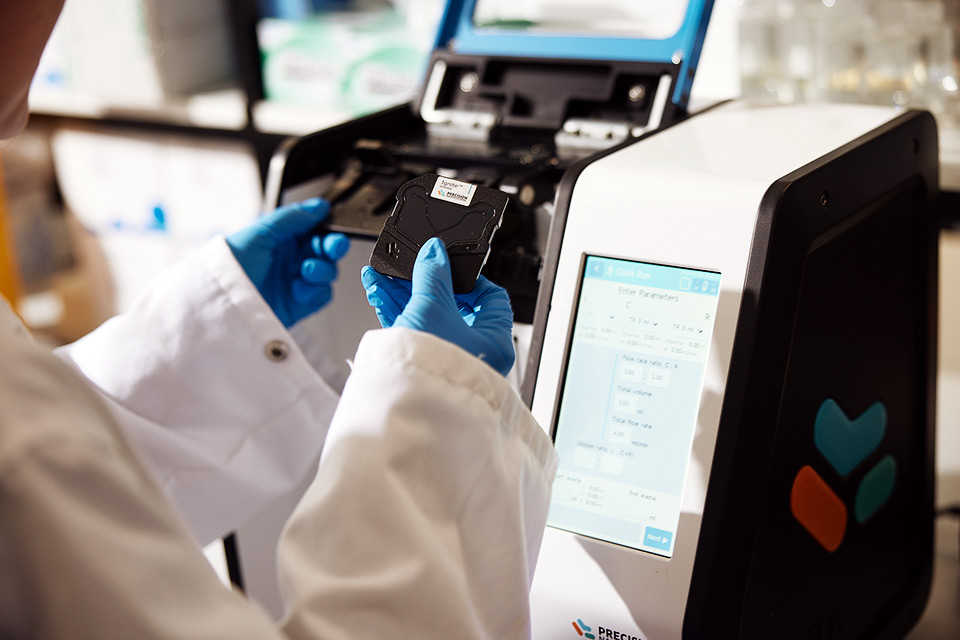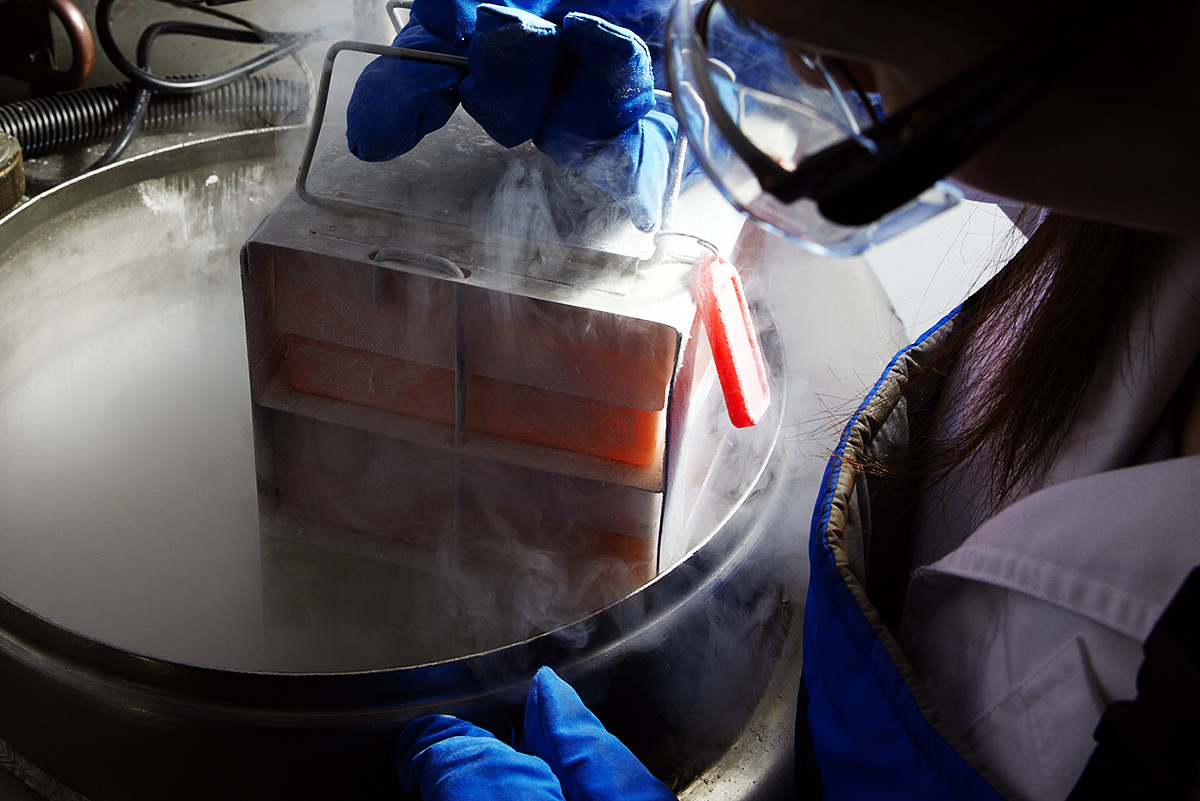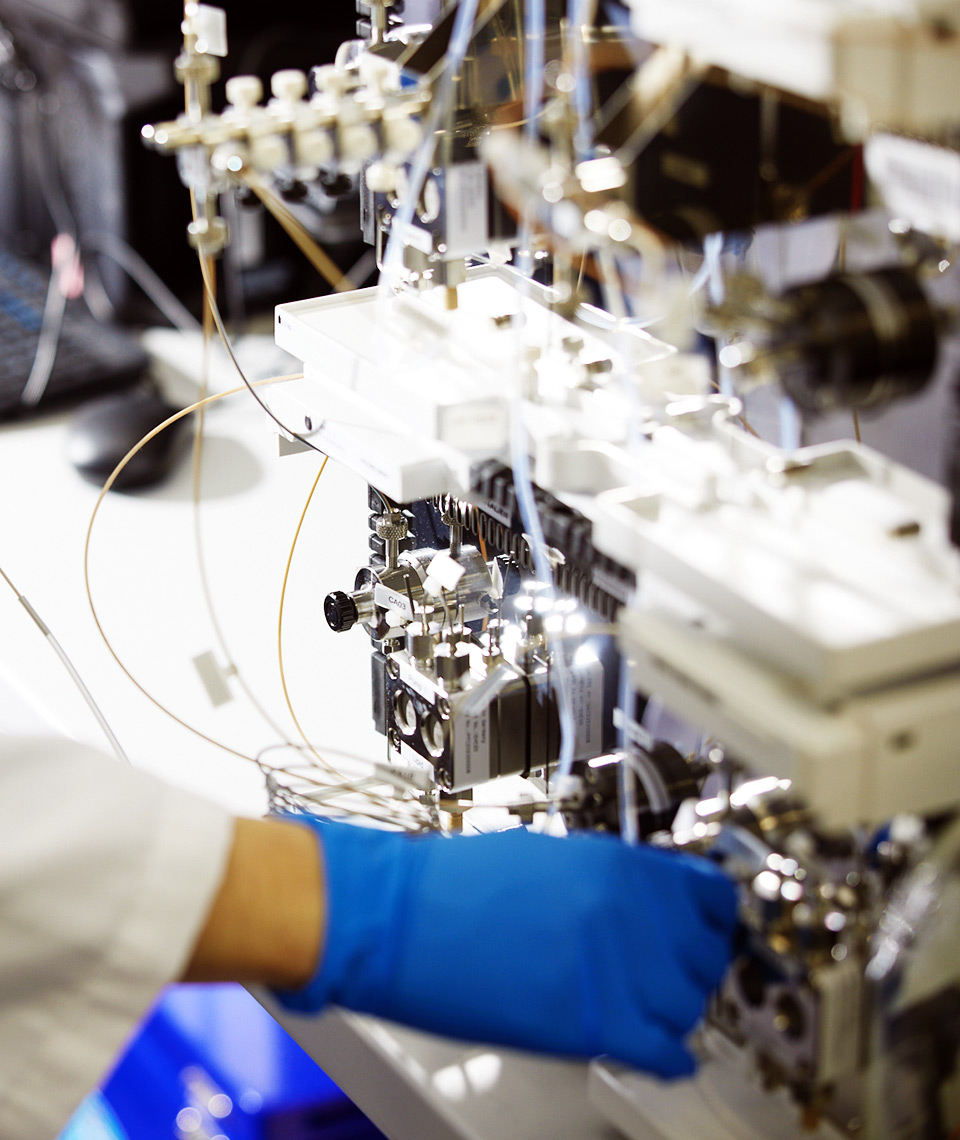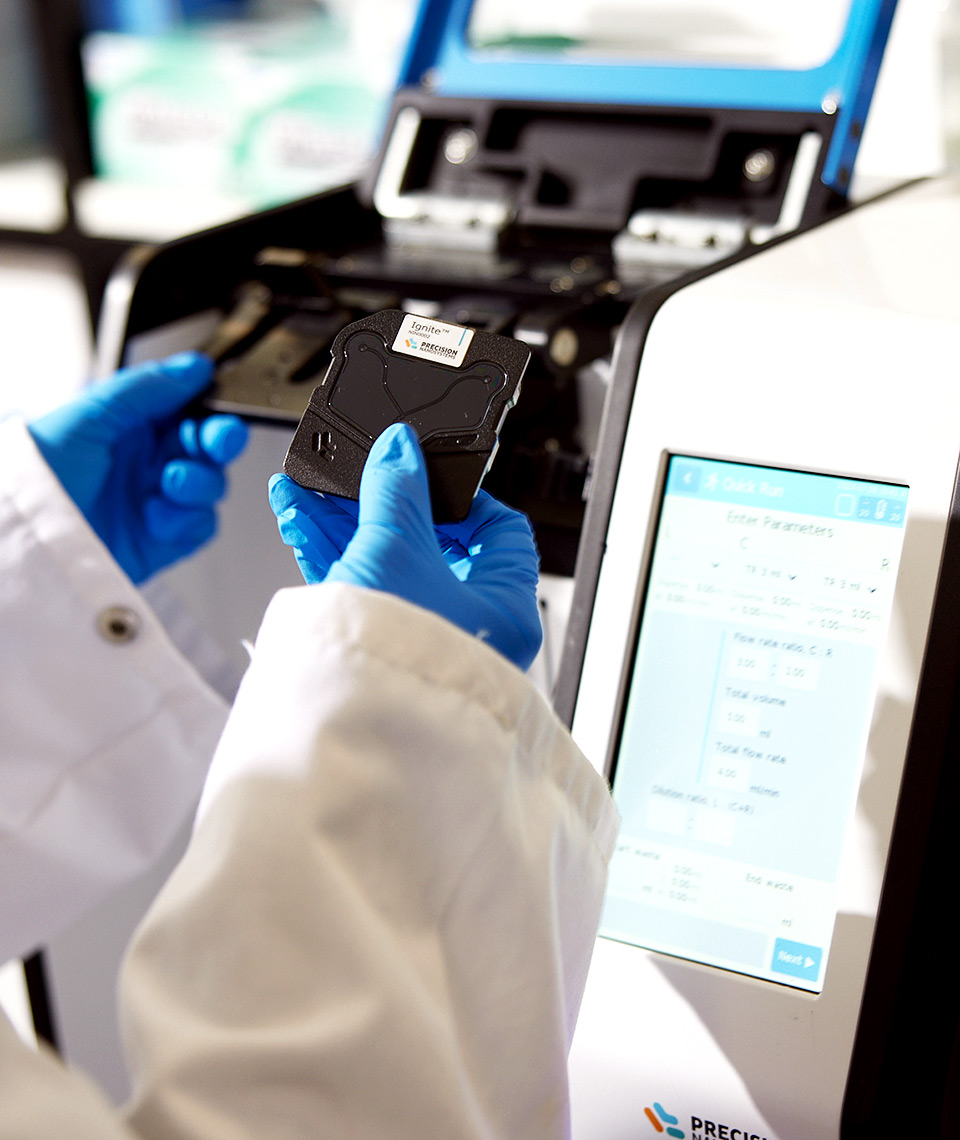
Small-scale lipid nanoparticle production is achieved with Cytiva’s Ignite Nanoassemblr.

Understand our manufacturing process from start to finish, and the cutting edge capabilities we utilise for it.

|
Sequence Identity (DNA template)
|
Sanger / Nanopore sequencing |
|---|---|
|
Sequence Identity (mRNA)
|
Nanopore sequencing |
|
mRNA Concentration and Purity
|
UV/Vis spectrometry |
|
mRNA Length / Integrity
|
Agarose Gel Electrophoresis Automated Gel Electrophoresis using Bioanalyzer |
|
dsRNA Analysis
|
Dot Blot / ELISA |
|
mRNA Efficiency (reporter sequences only)
|
In vitro cell transfection |
|
Concentration
|
Ribogreen Assay or UV/Vis spectrometry |
|---|---|
|
Encapsulation Efficiency
|
Ribogreen Assay |
|
Particle Size, Uniformity and Zeta
|
Dynamic light scattering |
|
Freeze-Thaw Stability
|
Dynamic light scattering |
|
Final Product Sterility
|
Sterile filtration (0.22 μm) |
A guide for getting the most out of your mRNA product.
mRNA must be stored at -80°C until use.
When ready to be used, it can be thawed in the fridge or at room temperature. Once thawed, making single use aliquots is recommended.
Single use aliquots can be stored at -80°C and reused up to two times without significant loss of potency, but multiple freeze-thawing is not recommended.
mRNA should not be vortexed. A gentle inversion of the tubes followed by a quick pulse spin on a microcentrifuge is sufficient to mix the formulations.
When working with mRNA, RNase free consumables and reagents should be used.
If dilution is required, dilute using nuclease-free water.


A guide for getting the most out of your mRNA-LNP product.
LNP formulations must be stored at -80°C until use.
We provide the formulations as a single use aliquot. When ready for use, the tube should be thawed at ambient temperature for about 30 minutes.
Never keep LNPs on ice, and multiple freeze-thawing is not recommended. When thawed, our LNPs can be stored at 4°C for approximately 1 week without a significant reduction in potency.
LNP formulations must be handled with care to prevent risk of aggregation. Changes in the morphology of LNPs can lead to mRNA leakage, resulting in a reduction in encapsulation efficiency and LNP activity.
The formulations should not be vortexed. A gentle inversion of the tube followed by a quick pulse spin on a microcentrifuge is sufficient to ensure a uniform suspension of particles.
mRNA Core is equipped with a diverse range of equipment for production, quality control and analysis.